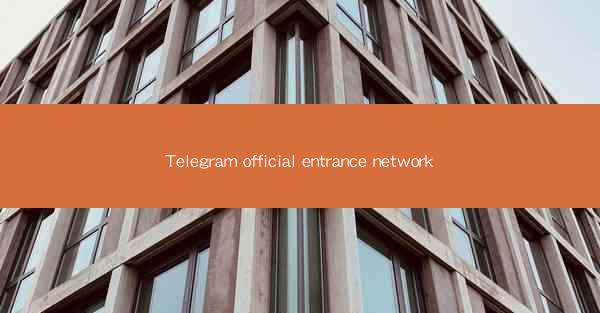What Accelerator Can Connect to Foreign Networks? In today's interconnected world, the ability to ...

What Accelerator Can Connect to Foreign Networks?
In today's interconnected world, the ability to connect to foreign networks is crucial for businesses, researchers, and individuals alike. An accelerator, in this context, refers to a device or technology that enhances or speeds up the process of connecting to these networks. This article explores various types of accelerators that can facilitate international connectivity, their functionalities, and their applications.
1. Types of Accelerators for International Connectivity
1.1. VPN Accelerators
Virtual Private Network (VPN) accelerators are designed to enhance the performance of VPN connections. They optimize the encryption and decryption processes, ensuring faster and more secure data transfer between local and foreign networks.
1.2. Content Delivery Network (CDN) Accelerators
CDN accelerators help in delivering content from servers located closer to the end-users, reducing latency and improving the overall performance of web applications and websites.
1.3. Load Balancer Accelerators
Load balancer accelerators distribute network traffic across multiple servers, ensuring optimal performance and high availability. They help in handling increased traffic volumes and preventing network congestion.
1.4. DNS Accelerators
DNS accelerators improve the resolution of domain names, reducing the time taken to load web pages and other online resources. They cache DNS records, minimizing the need for repeated queries to external DNS servers.
1.5. Anycast Accelerators
Anycast accelerators use a single IP address for multiple locations, directing traffic to the nearest server. This reduces latency and improves the speed of data transfer between local and foreign networks.
1.6. Compression Accelerators
Compression accelerators reduce the size of data packets, resulting in faster transmission and lower bandwidth usage. They are particularly useful for streaming media and large file transfers.
1.7. Firewall Accelerators
Firewall accelerators enhance the performance of network firewalls by offloading processing tasks to dedicated hardware. This ensures faster response times and improved security.
1.8. Network Interface Card (NIC) Accelerators
NIC accelerators optimize the performance of network interfaces, providing faster data transfer rates and lower latency. They are commonly used in data centers and high-performance computing environments.
2. Functionalities of Accelerators for International Connectivity
2.1. Enhanced Security
Accelerators, such as VPN and firewall accelerators, provide enhanced security by encrypting data and filtering out malicious traffic. This ensures that sensitive information remains protected during international data transfers.
2.2. Improved Performance
By optimizing network traffic and reducing latency, accelerators enhance the overall performance of international connections. This is particularly beneficial for applications that require real-time data transfer, such as video conferencing and online gaming.
2.3. Scalability
Accelerators enable networks to handle increased traffic volumes without compromising performance. This scalability is crucial for businesses that experience fluctuating demand for their services.
2.4. Redundancy
Accelerators can be configured to work in tandem with multiple servers or network devices, ensuring redundancy and high availability. This minimizes the risk of downtime and service interruptions.
2.5. Quality of Service (QoS)
Accelerators can prioritize certain types of traffic, ensuring that critical applications receive the necessary bandwidth and resources. This improves the overall user experience and ensures smooth operation of network-dependent services.
2.6. Cost-Effectiveness
By optimizing network performance and reducing bandwidth usage, accelerators can help businesses save on operational costs. They also extend the lifespan of network equipment, further reducing long-term expenses.
3. Applications of Accelerators for International Connectivity
3.1. Business Collaboration
Accelerators facilitate seamless communication and collaboration between businesses operating in different countries. They enable employees to access shared resources, such as databases and file servers, with minimal latency.
3.2. E-commerce
Accelerators play a crucial role in e-commerce by ensuring fast and reliable delivery of online content. They help in reducing the time taken to load web pages, resulting in improved customer satisfaction and increased sales.
3.3. Remote Work
With the rise of remote work, accelerators are essential for ensuring seamless connectivity between employees and their organizations. They enable employees to access company resources and collaborate with colleagues from anywhere in the world.
3.4. Education
Accelerators can enhance the performance of online learning platforms, enabling students and educators to access educational resources without experiencing delays. This is particularly important for institutions with a global student body.
3.5. Healthcare
In the healthcare industry, accelerators can facilitate secure and efficient data transfer between hospitals, clinics, and research institutions. This is crucial for sharing patient records, treatment protocols, and research findings.
3.6. Entertainment
Accelerators can improve the streaming quality of online video and audio content, ensuring a seamless viewing experience for users across different countries. This is particularly important for streaming services with a global audience.
3.7. Research and Development
Accelerators can enhance the performance of research and development activities by facilitating fast and secure data transfer between research institutions and collaborators worldwide.
3.8. Government and Public Sector
Accelerators can improve the efficiency of government and public sector operations by enabling secure and reliable communication between different departments and agencies.
4. Challenges and Considerations
4.1. Compatibility
Choosing the right accelerator requires considering compatibility with existing network infrastructure and devices. Businesses must ensure that the chosen solution integrates seamlessly with their current setup.
4.2. Scalability
Accelerators must be scalable to accommodate growing network demands. Businesses should choose solutions that can be easily expanded or upgraded as needed.
4.3. Security
Security is a critical concern when implementing accelerators. Businesses must ensure that the chosen solution provides robust security features to protect sensitive data during international transfers.
4.4. Cost
The cost of implementing accelerators can be a significant factor for businesses. They must weigh the benefits of improved performance and security against the associated expenses.
4.5. Maintenance and Support
Regular maintenance and support are essential for ensuring the optimal performance of accelerators. Businesses should consider the availability of technical support and maintenance services when choosing a solution.
4.6. Regulatory Compliance
Accelerators must comply with international regulations and standards, particularly when handling sensitive data. Businesses must ensure that their chosen solution adheres to relevant laws and regulations.
5. Conclusion
In conclusion, accelerators play a crucial role in facilitating international connectivity. By optimizing network performance, enhancing security, and improving scalability, accelerators enable businesses, researchers, and individuals to access foreign networks with ease. As the world becomes increasingly interconnected, the demand for efficient and secure international connectivity will only grow. Choosing the right accelerator is essential for ensuring seamless and reliable connectivity in today's globalized world.






























